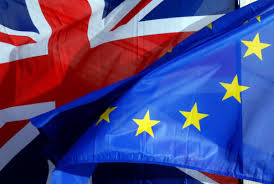In its research concerning the complaint that was filed against ratification of the Unified Patent Court Agreement, the German Federal Constitutional Court (FCC) gave a series of mainly German institutions and associations the opportunity to submit their views.
A spokesman of the Court, the Bundesverfassungsgericht, declared in answer to questions of Kluwer IP Law that a request for comment on the complaint was sent to both chambers of German parliament (the Bundestag and Bundesrat); to the Federal Government (the Federal Chancellery, the Federal Ministry of Justice and Consumer Protection and the Federal Ministry of the Interior); to all governments of the Bundesländer and to the Federal Bar Association, the German Lawyers’ Association (DAV, Deutscher Anwaltverein) and the European Patent Lawyers’ Association.
The spokesman added that ‘during the further course of the proceedings it is possible that the Federal Constitutional Court may ask additional agencies to submit statements’. This could refer to for instance the EPO, the European Commission or the UPC Preparatory Committee, that have so far not received a request for comment.
Last week, various sources confirmed that the constitutional complaint was filed by the Düsseldorf-based law attorney Dr. Ingve Stjerna, a longtime critic of the Unitary Patent system. As reported earlier by patent attorney Thorsten Bausch on this blog, Stjerna’s claim that the UPCA is unconstitutional is based on four grounds:
‘In terms of substance, plaintiff is essentially asserting a breach of the limits to surrendering sovereignty that are derived from the right to democracy (Art. 38 (1), clause 1, Basic Law). Primarily the following violations are asserted:
- breach of the requirement for a qualified majority arising from Art. 23 (1), sentence 3, in conjunction with Art. 79 (2) Basic Law;
- democratic deficits and deficits in rule of law with regard to the regulatory powers of the organs of the UPC;
- the judges of the UPC are not independent nor do they have democratic legitimacy;
- breach of the principle of openness towards European law owing to alleged irreconcilability of the UPC with Union law.’
As explained in detail in the blogpost, the first point probably refers to the fact that according to the complaint a majority of two thirds of the Members of the Bundestag would have been necessary to ratify the UPCA, and this quorum wasn’t there. Last July, Dr. Stjerna published an article about this issue here.
According to Bausch, the second point could allude ‘to the structure and (relatively far-reaching) powers of the UPC administrative committee, which is/are quite similar to the structure and powers of the administrative committee of the EPO and which are at least indirectly subject to four pending constitutional complaints in regard to the EPO (…)’.
In addition it could also be based on the argument made by Prof. Broß (GRUR Int. 2017, 670) that the UPC has not been set up as a court being competent to review EPO decisions (particularly in the case of a final rejection or revocation of a European patent or application by the EPO), so that any democratic and rule-of-law deficiencies inherent to the EPC would be incorporated into EU law, as Bausch published here.
The fourth argument, referring to the relation between the UPCA and European Union Law, has led to a lot of debate since the Brexit vote. The DAV argued in a position paper that ‘the UPCA being an agreement in the field of international law is not part of EU law. Therefore, a Brexit would not affect the UPCA.’ In a February 2017 paper however, Stjerna wrote the UK shouldn’t ratify the UPCA if it wanted, as UK Prime Minister Theresa May announced a month earlier, ‘to bring an end to the jurisdiction of the European Court of Justice in Britain’. Stjerna: ‘(…) the UPC [is] subject to far-reaching obligations from Union law and to the CJEU’s interpretation competence.’
 In January 2017, in another paper on his website ‘The Gordon/Pascoe Opinion and the UPCA’s incompatibility with Union law’, he stated: ‘The Opinion, which widely appears to develop legally far-fetched results in support of desired results, assumes almost self-evidently that the Unified Patent Court is not a court common to the Contracting Member States of the UPCA. Since the political approach for ensuring the UPCA’s compatibility with Union law after Opinion 1/09 was always based on the opposite understanding, it supports the voices arguing that the Agreement violates Union law and demanding it to be submitted to CJEU scrutiny as to create legal certainty for the users. Such scrutiny could be initiated in the German ratification proceedings.’
In January 2017, in another paper on his website ‘The Gordon/Pascoe Opinion and the UPCA’s incompatibility with Union law’, he stated: ‘The Opinion, which widely appears to develop legally far-fetched results in support of desired results, assumes almost self-evidently that the Unified Patent Court is not a court common to the Contracting Member States of the UPCA. Since the political approach for ensuring the UPCA’s compatibility with Union law after Opinion 1/09 was always based on the opposite understanding, it supports the voices arguing that the Agreement violates Union law and demanding it to be submitted to CJEU scrutiny as to create legal certainty for the users. Such scrutiny could be initiated in the German ratification proceedings.’
However, the text of the constitutional complaint, which is rumored to comprise about 160 pages, is not available on Stjerna’s website. Stjerna has declined requests to publish the complaint or have it published.
In the meantime, the Unitary Patent system will face much more delay than the UPC Preparatory Committee hoped for. In his ‘Message from the Chairman’ of June 2017, Alexander Ramsay wrote: ‘I am hopeful the situation regarding the constitutional complaint in Germany will be resolved rather quickly and therefore I am hopeful that the period of provisional application can start during the autumn 2017 which would mean that the sunrise period for the opt out procedure would start early 2018 followed by the entry into force of the UPCA and the UPC becoming operational.’
The spokesman of the FCC told Kluwer IP Law that the deadline for submitting statements regarding the constitutional complaint against ratification of the UPCA is 31 October 2017. This means the decision on admissibility of the complaint – which is only a first step – will be made in November at the earliest. The spokesman said a date for decision has not been scheduled yet.
For regular updates on the Unitary Patent and the Unified Patent Court, subscribe to this blog and the free Kluwer IP Law Newsletter.
________________________
To make sure you do not miss out on regular updates from the Kluwer Patent Blog, please subscribe here.



